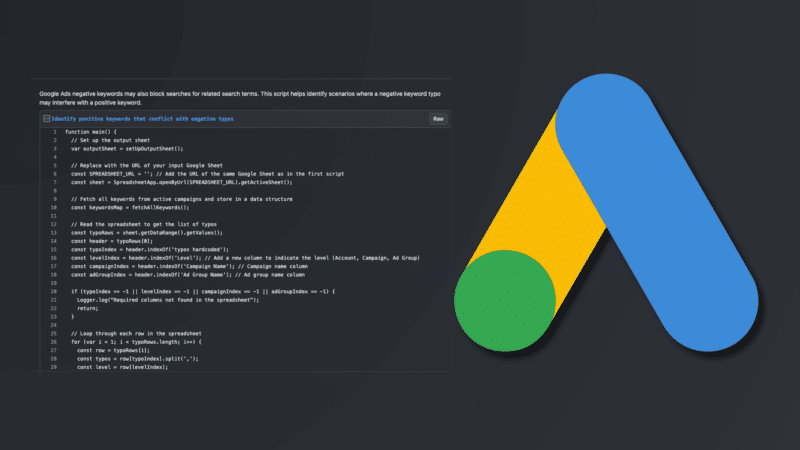
Leveraging Generative AI in Google Ads Optimization: A Game Changer for Advertisers
In the fast-paced world of digital marketing, the complexity of managing Google Ads often creates barriers for advertisers. However, the integration of generative AI, such as GPT, is poised to revolutionize the way marketing professionals approach ad scripts. The article by Frederick Vallaeys brings to light the transformative potential of GPT in simplifying the automation of Google Ads, making it accessible to marketers regardless of their technical skills.
Traditionally, creating effective Google Ads scripts demanded programming knowledge, which could discourage many from harnessing this powerful tool. But with GPT, the possibilities are endless. It can generate fully functional scripts from simple notes, allowing users to automate processes like negative keyword conflict detection effortlessly. This adaptation frees advertisers from tedious manual checks, ensuring that critical keywords remain effective without unnecessary blockage.
Moreover, the accuracy of GPT can be significantly enhanced through the utilization of specific Google Ads campaign data. By integrating data directly from Google Ads scripts or exporting it to platforms like Google Sheets, advertisers can guide GPT to provide insightful, tailored recommendations based on real performance metrics. This data-driven approach mitigates the risks of AI-generated inaccuracy, reinforcing the reliability of the automation process.
Another noteworthy advantage is GPT’s ability to repurpose existing scripts. Instead of starting from scratch, marketers can modify current tools for varied uses. For instance, transforming a search trend analysis script into a brainstorming tool for newsletter content can lead to innovative applications that maximize the value of existing resources. This flexibility encourages creative thinking and optimization in ad management.
Importantly, while GPT enhances traditional automation tools, it does not aim to replace them. Instead, it serves as a catalyst for innovation, enabling advertisers to explore new paths for campaign management. By incorporating generative AI, marketers not only simplify their workflow but also elevate their strategic approaches.
In the context of digital marketing actions often tied to campaigns, using effective URL shortening solutions can enhance user engagement. Tools such as short link management services and custom domain URL shorteners can work hand in hand with GPT-generated content. For example, integrating URL shorteners can simplify tracking link performance and managing campaign data, thus allowing marketers to focus on the creative aspects of their ads while utilizing generative AI for effective automation.
Following this line of thought, employing a robust link shortener paired with GPT can result in highly effective campaign management. Advertisers can benefit from a short link maker that enhances tracking and visibility while simultaneously streamlining ad script processes. The synergy between generative AI and URL shorteners can lead to improved campaign efficiency and a better understanding of audience engagement.
The implications of leveraging generative AI in Google Ads are profound. By simplifying the complexities of script management and integrating tools like #BitIgniter, #LinksGPT, and #UrlShortener, marketers are empowered to take their campaigns to new heights. The future of digital advertising is not just about automation; it’s about smart automation that drives substantial results.
标签
#BitIgniter #LinksGPT #UrlExpander #UrlShortener #DigitalMarketing #MarketingAutomation
Want to know more: https://searchengineland.com/generative-ai-scripts-google-ads-optimization-453065

